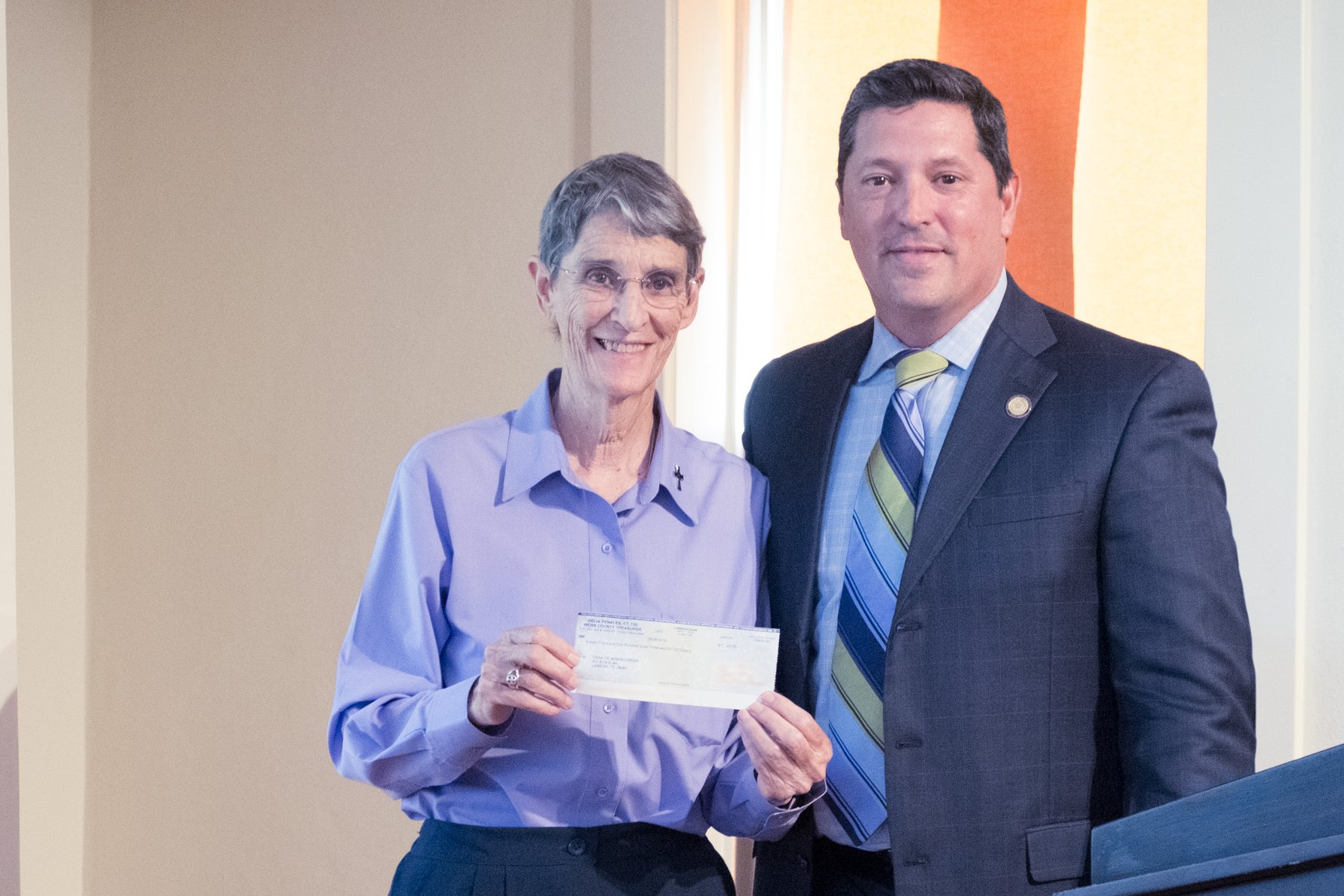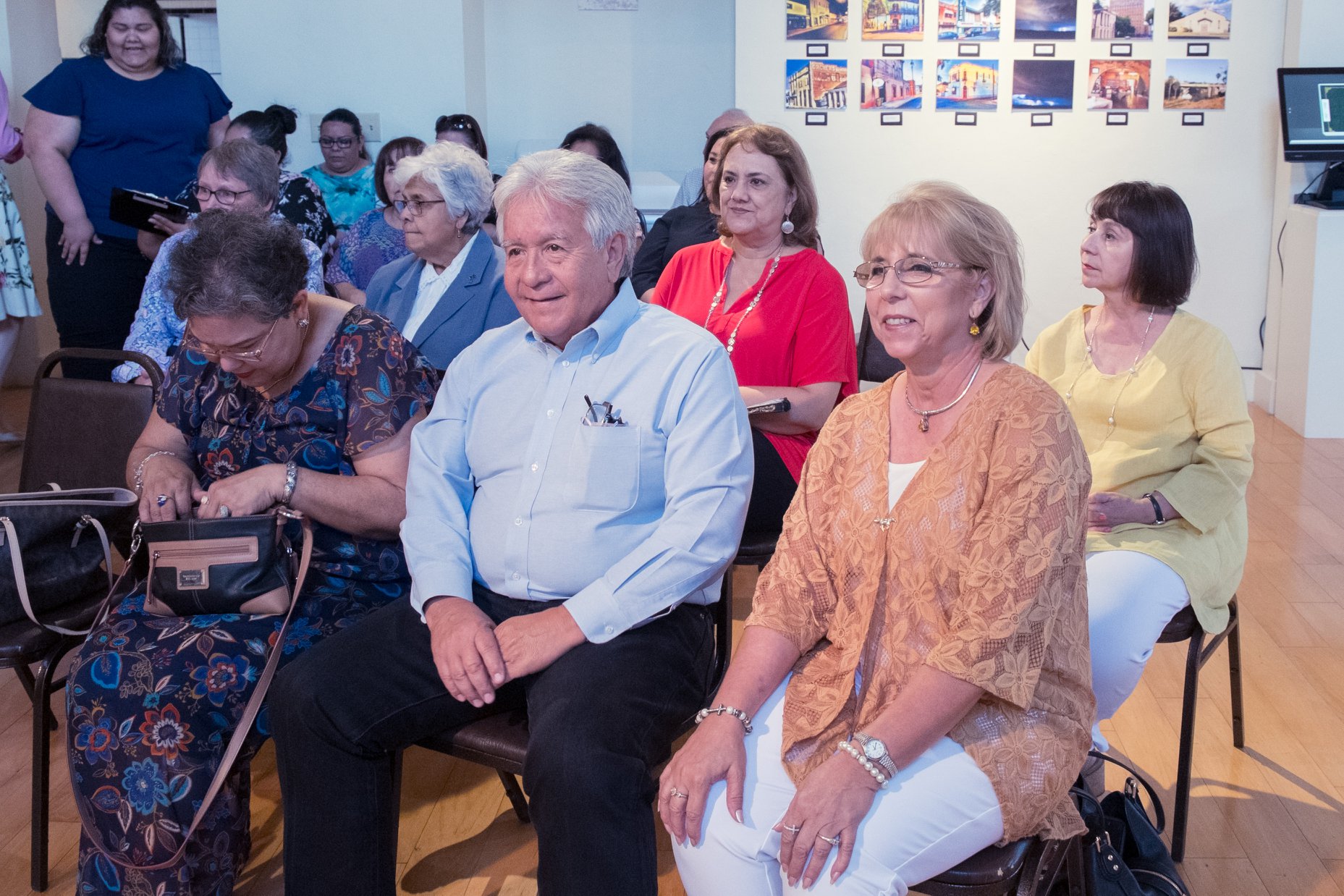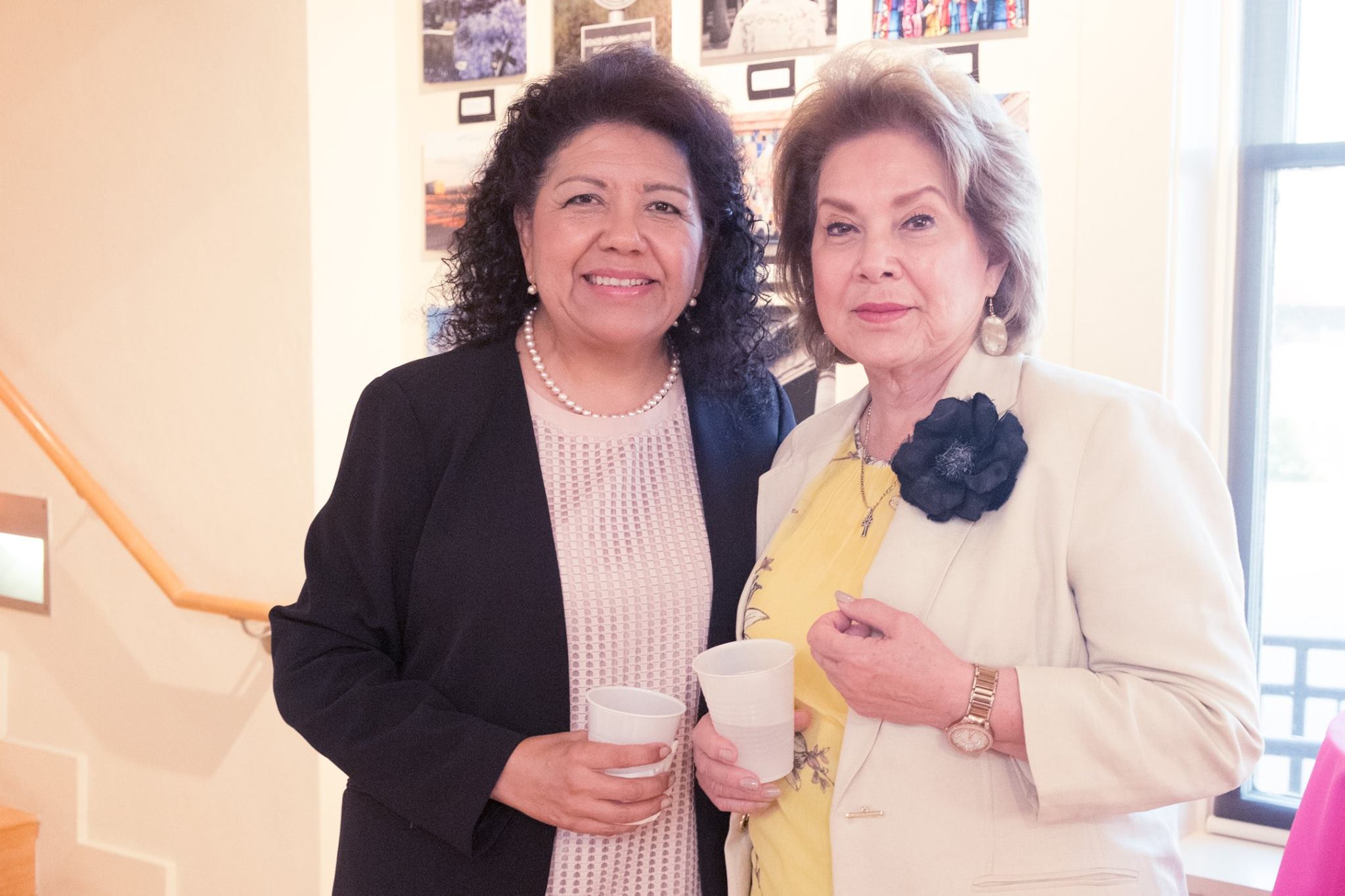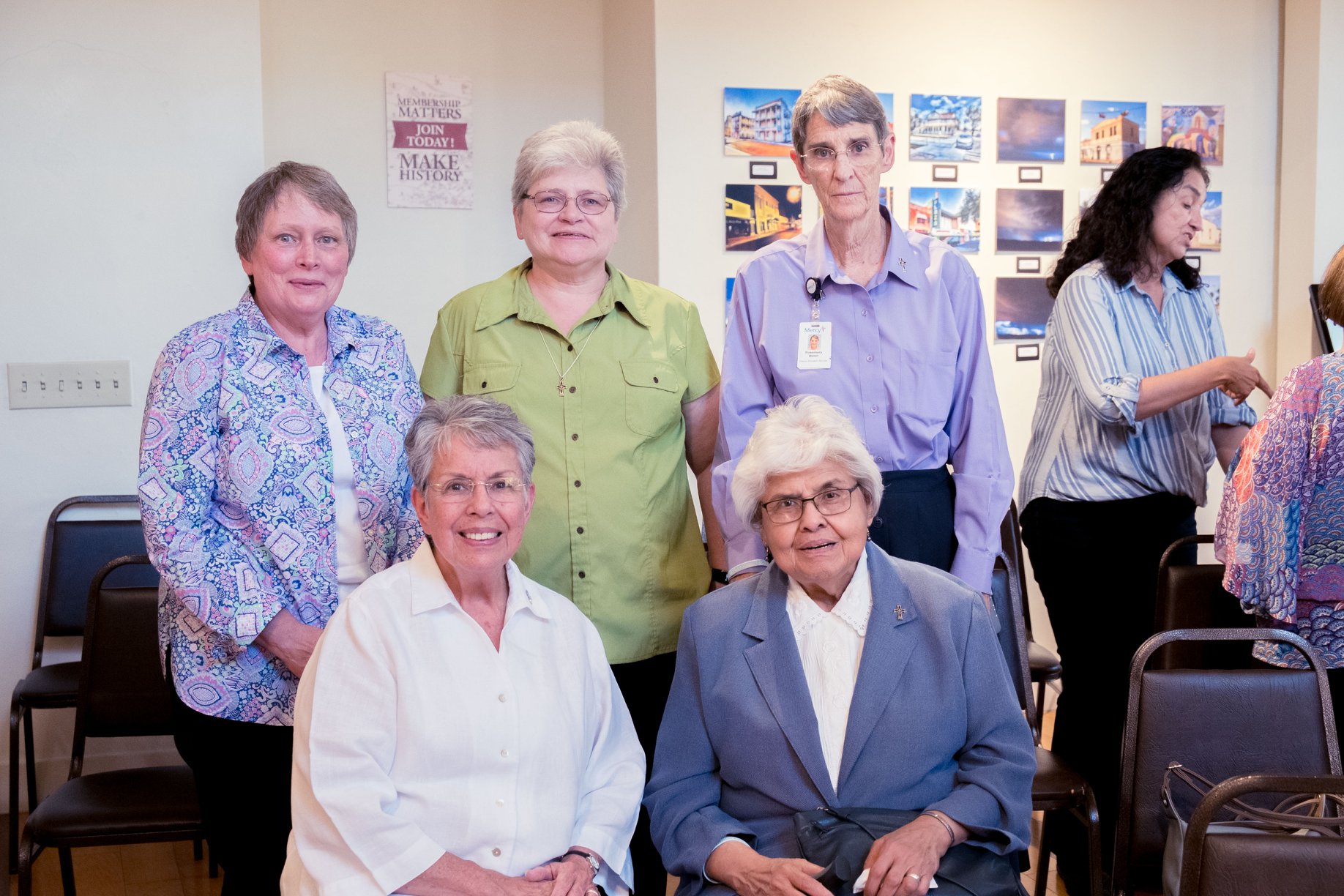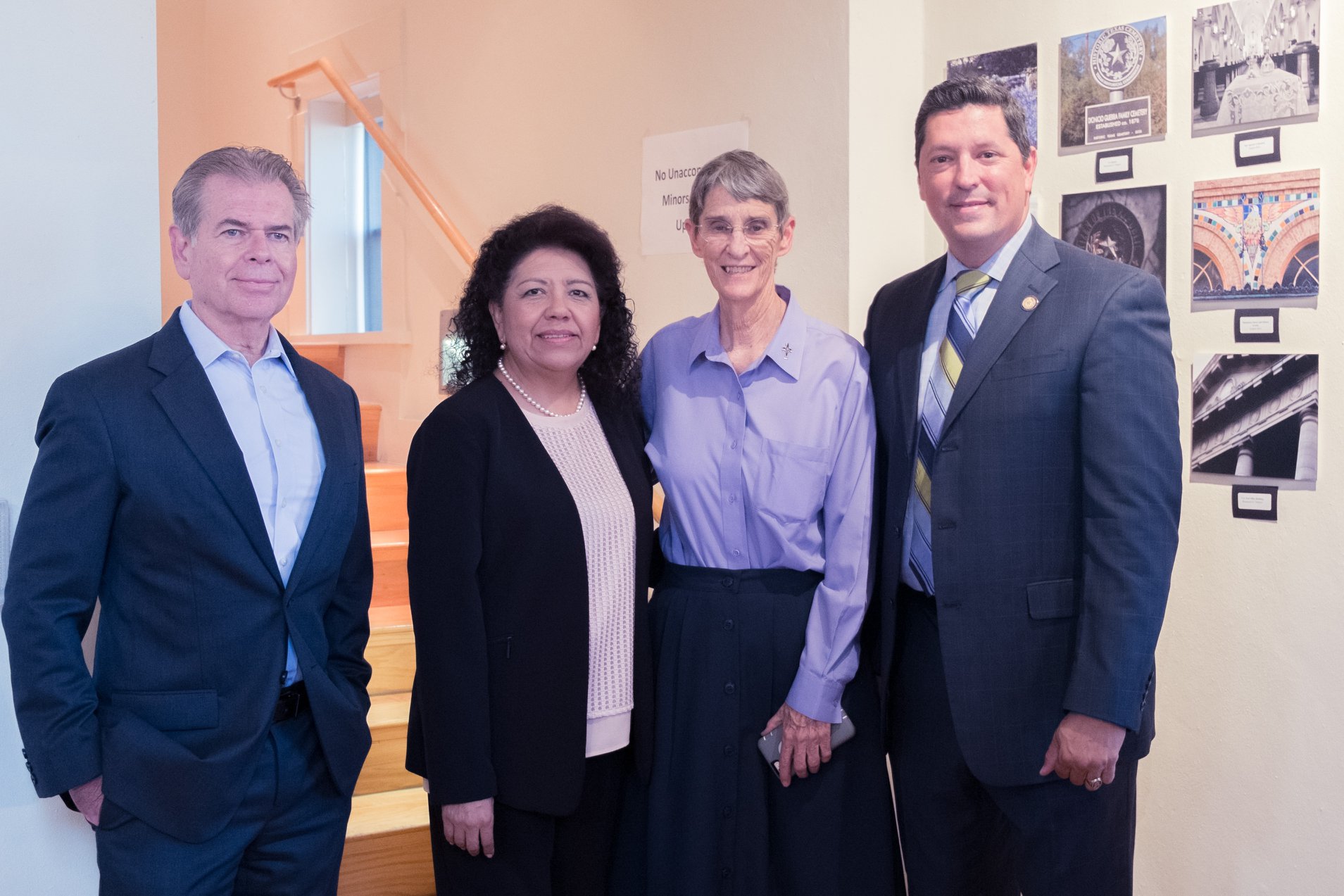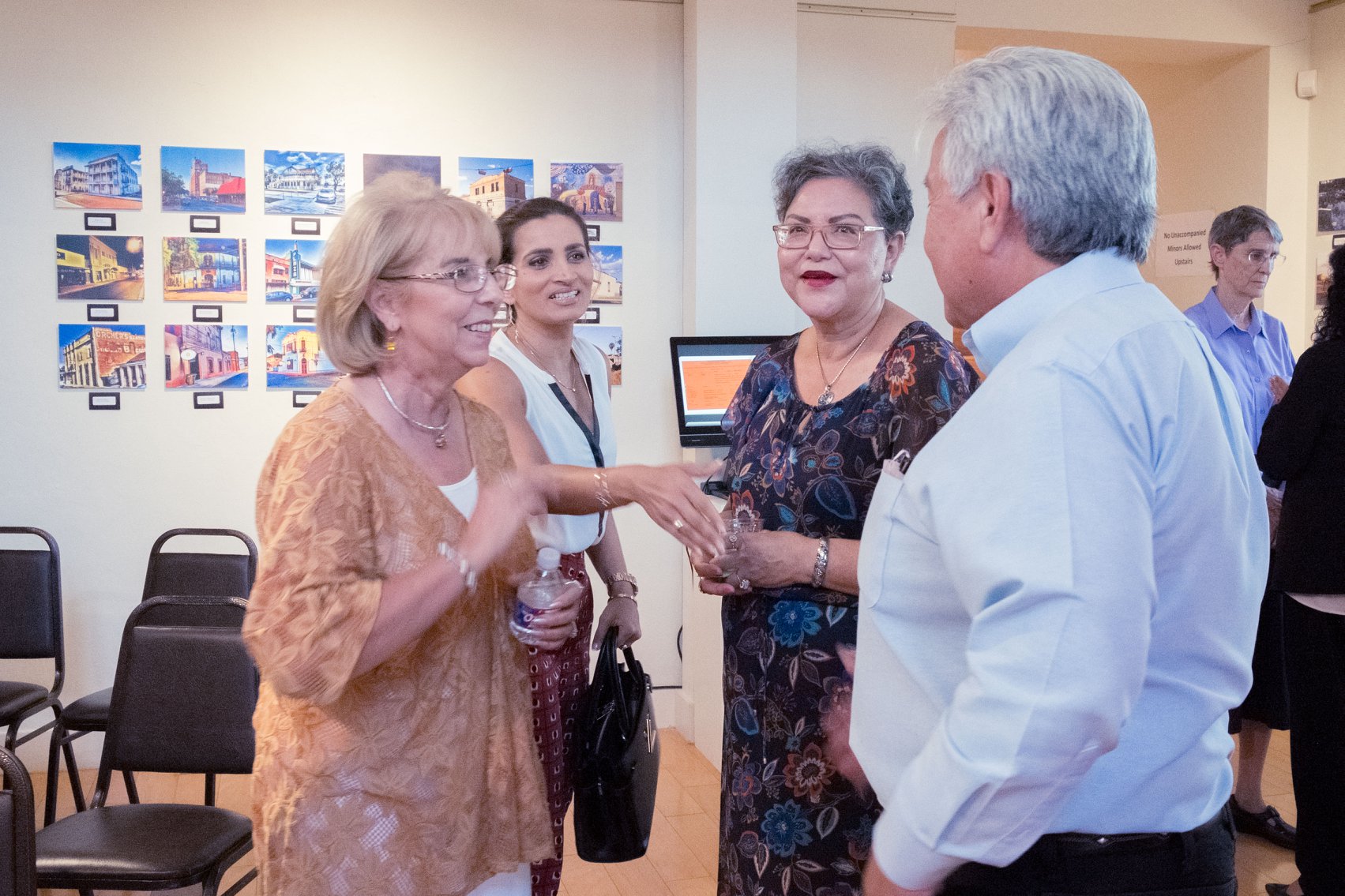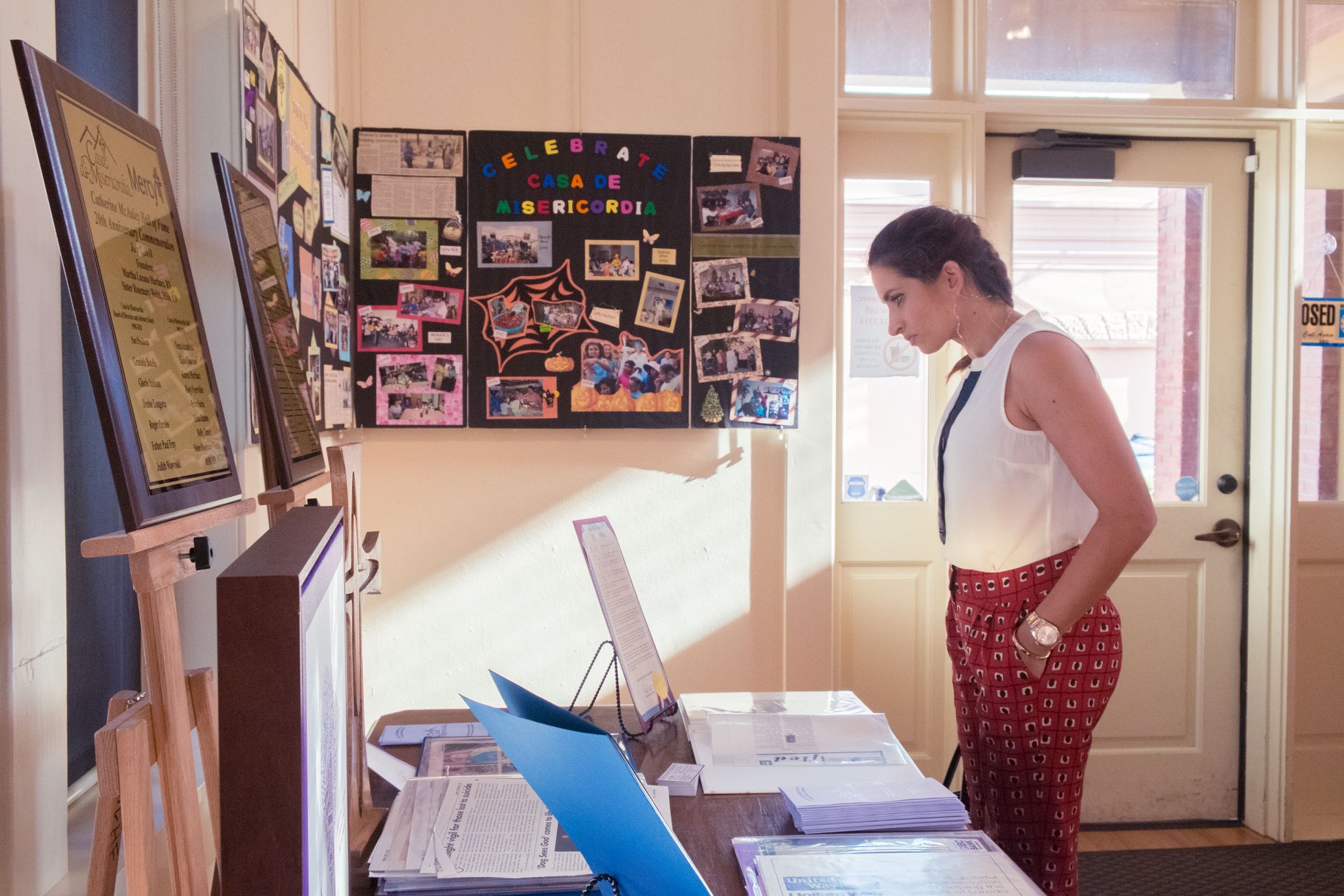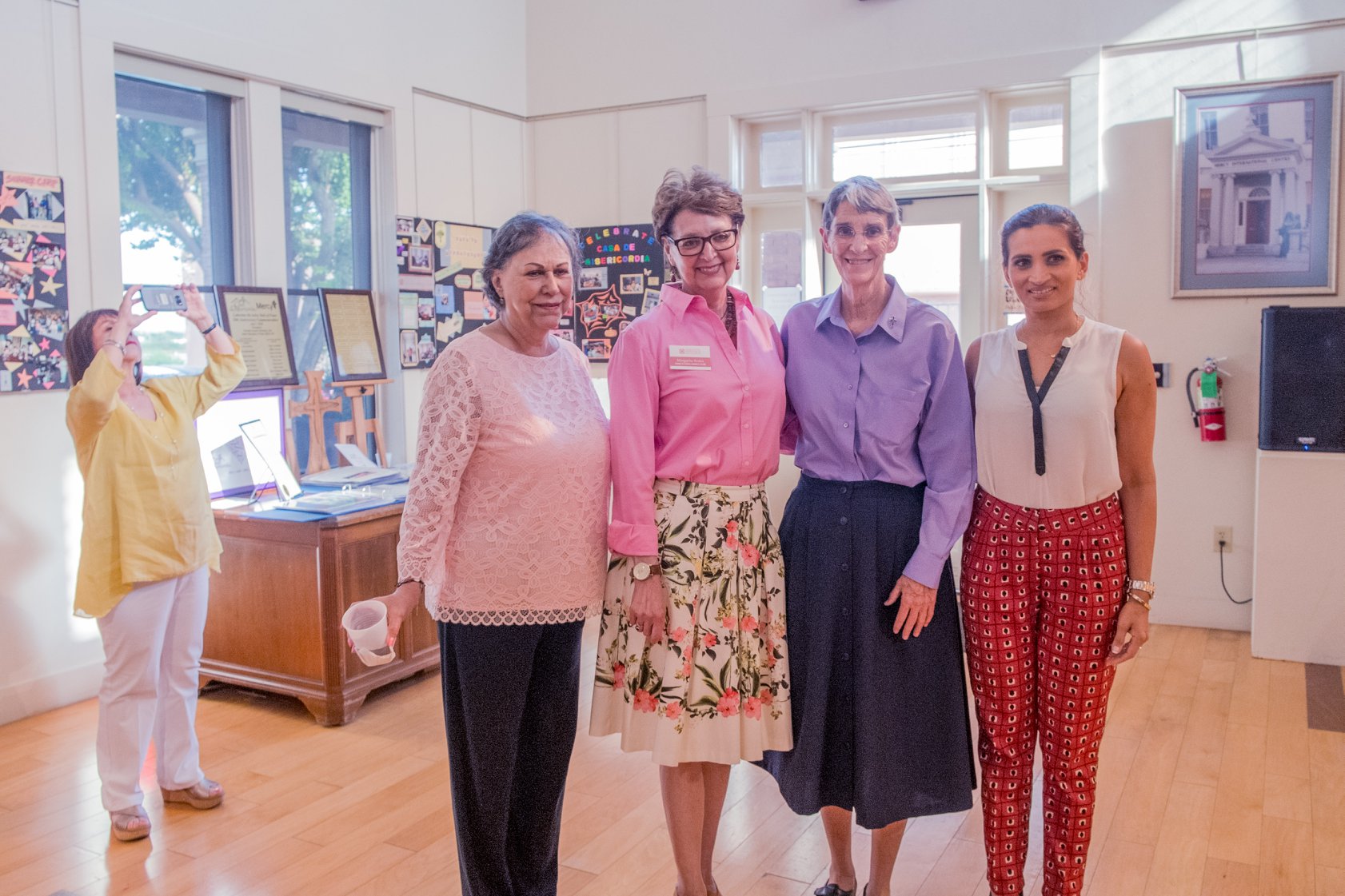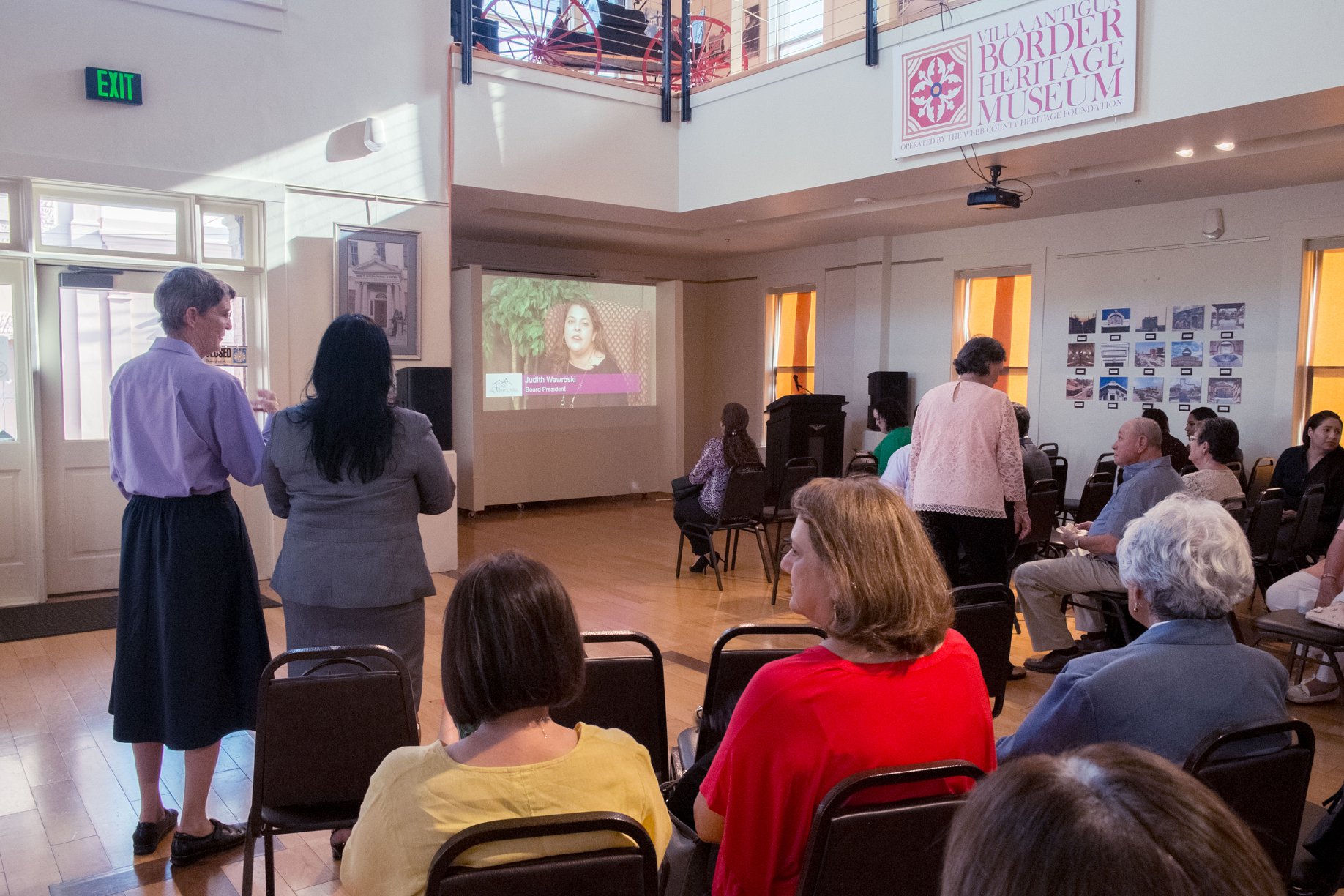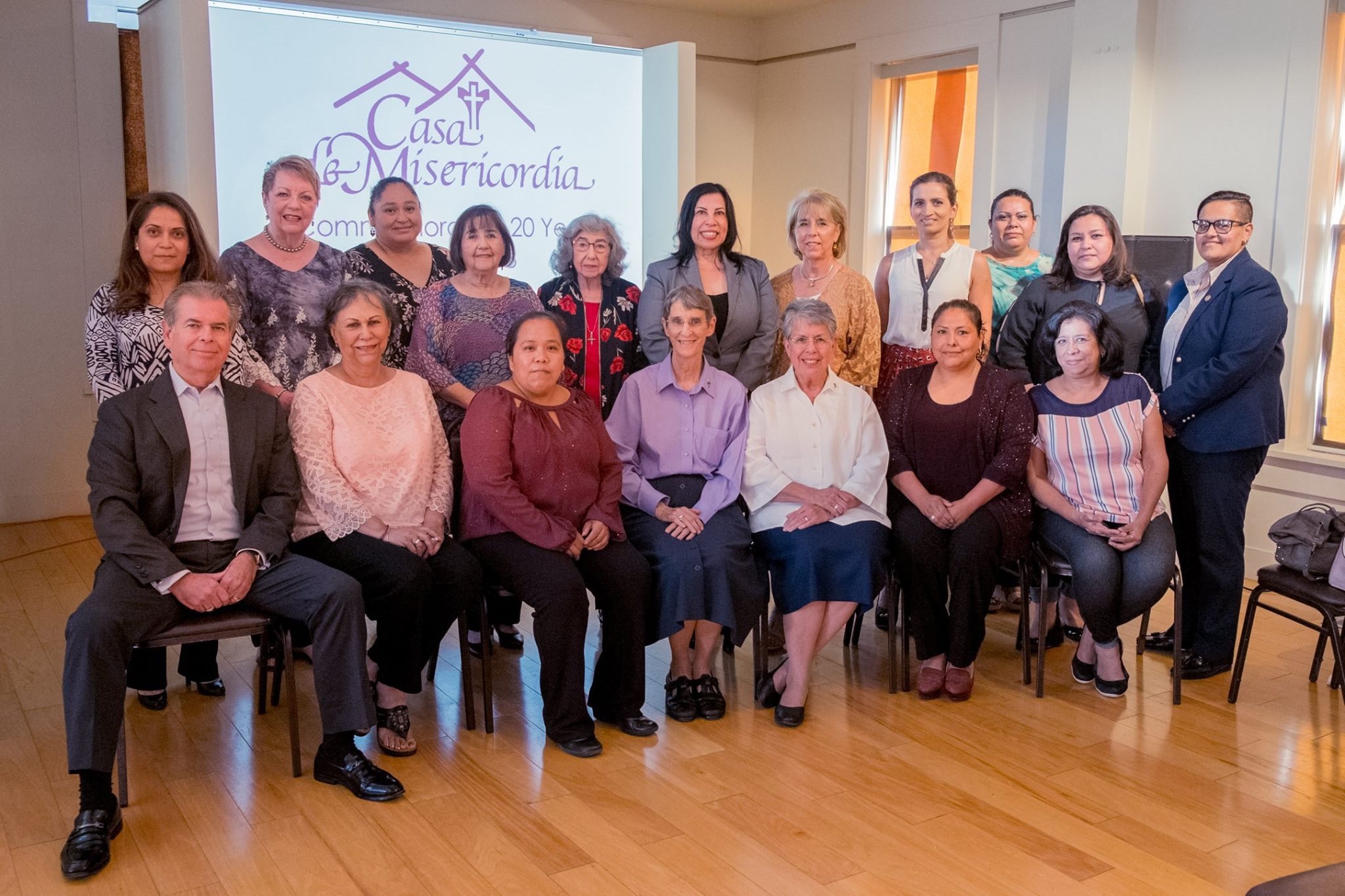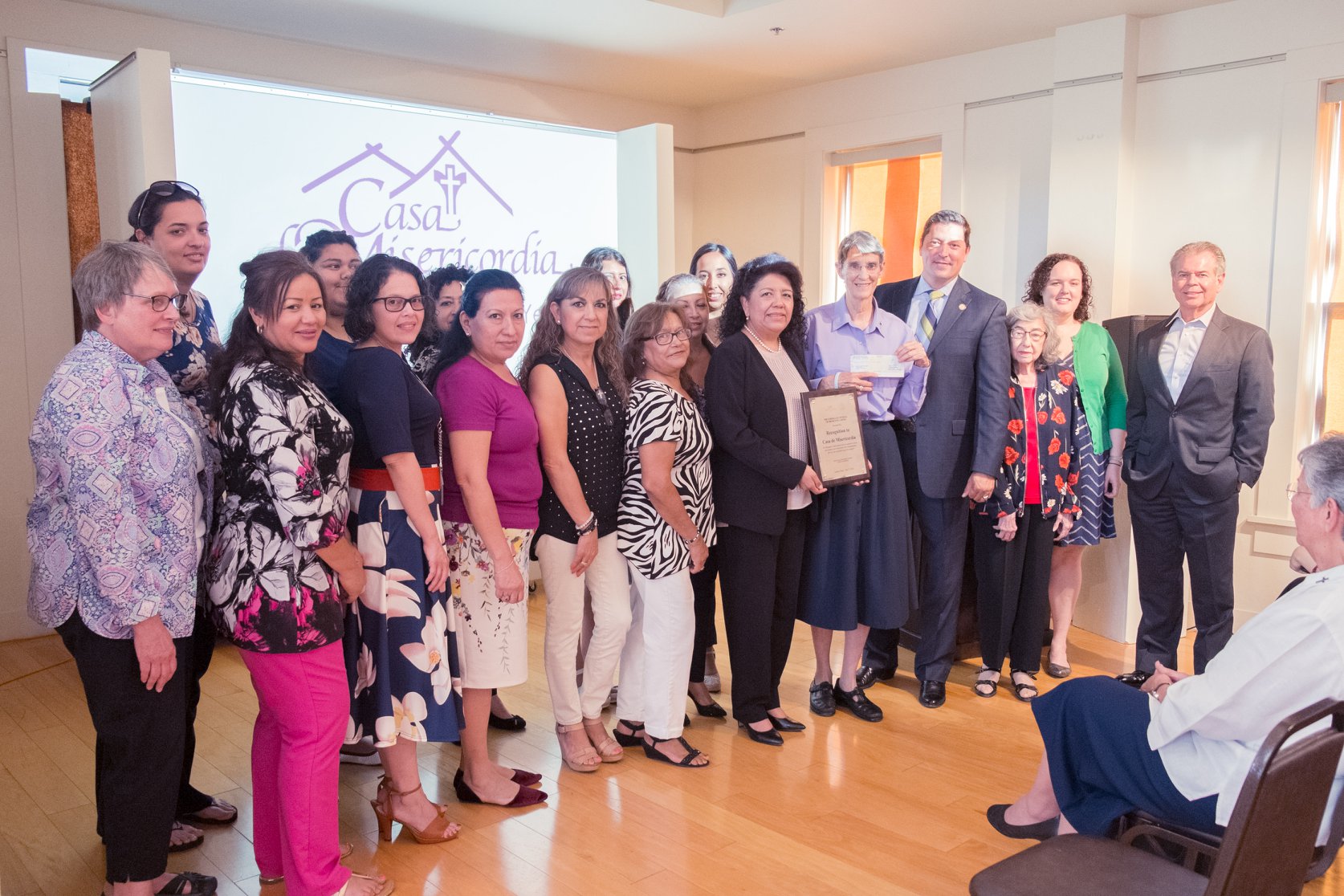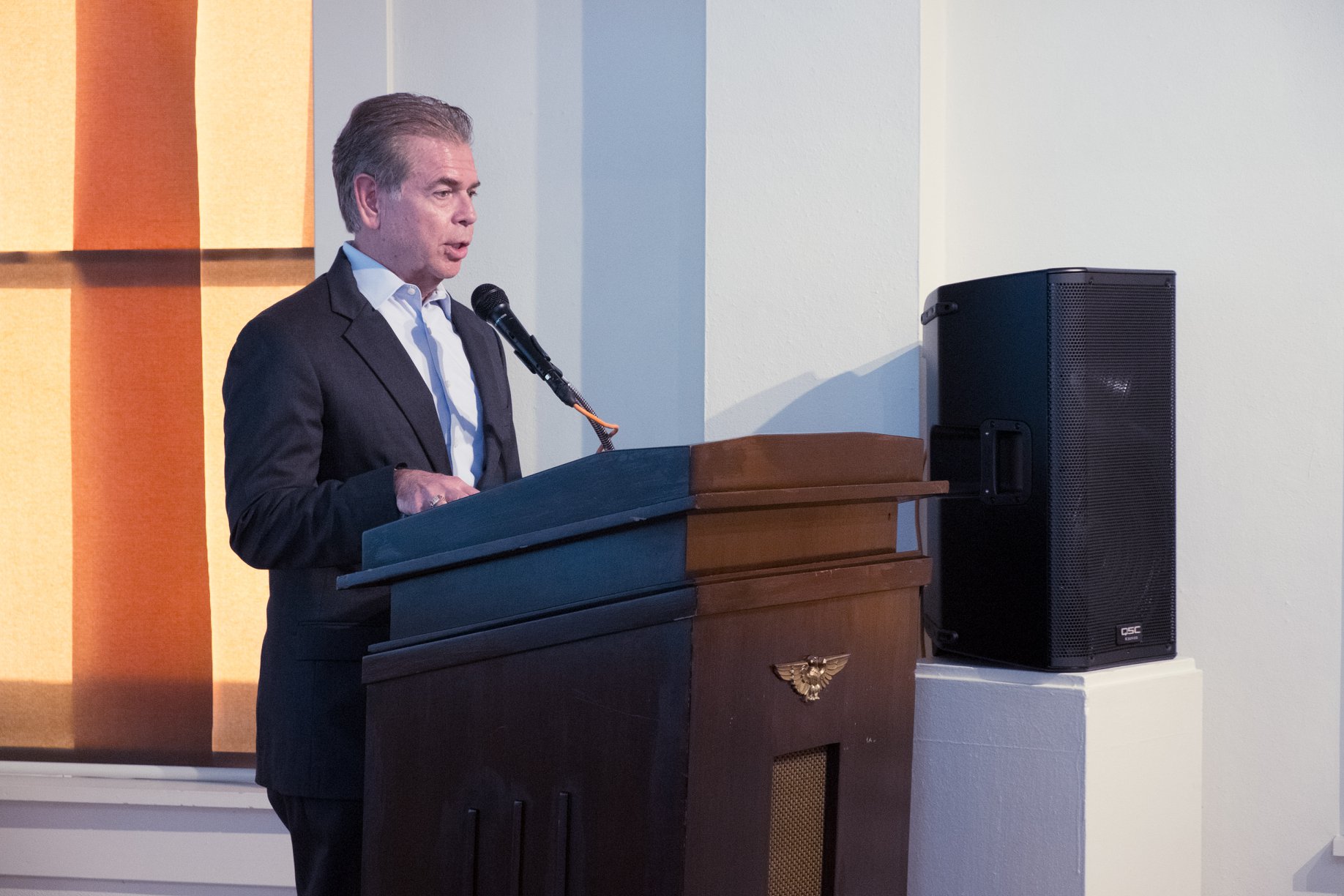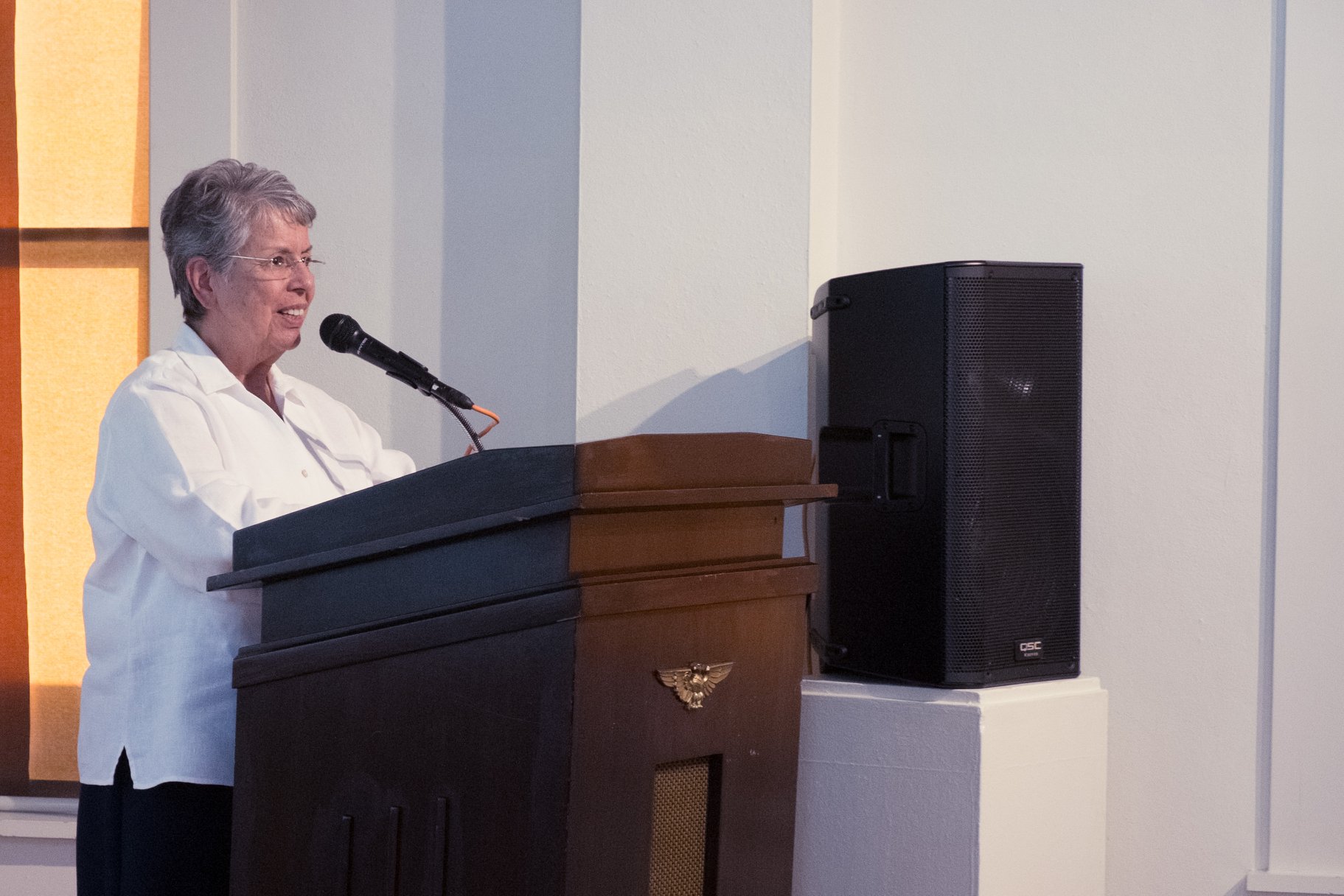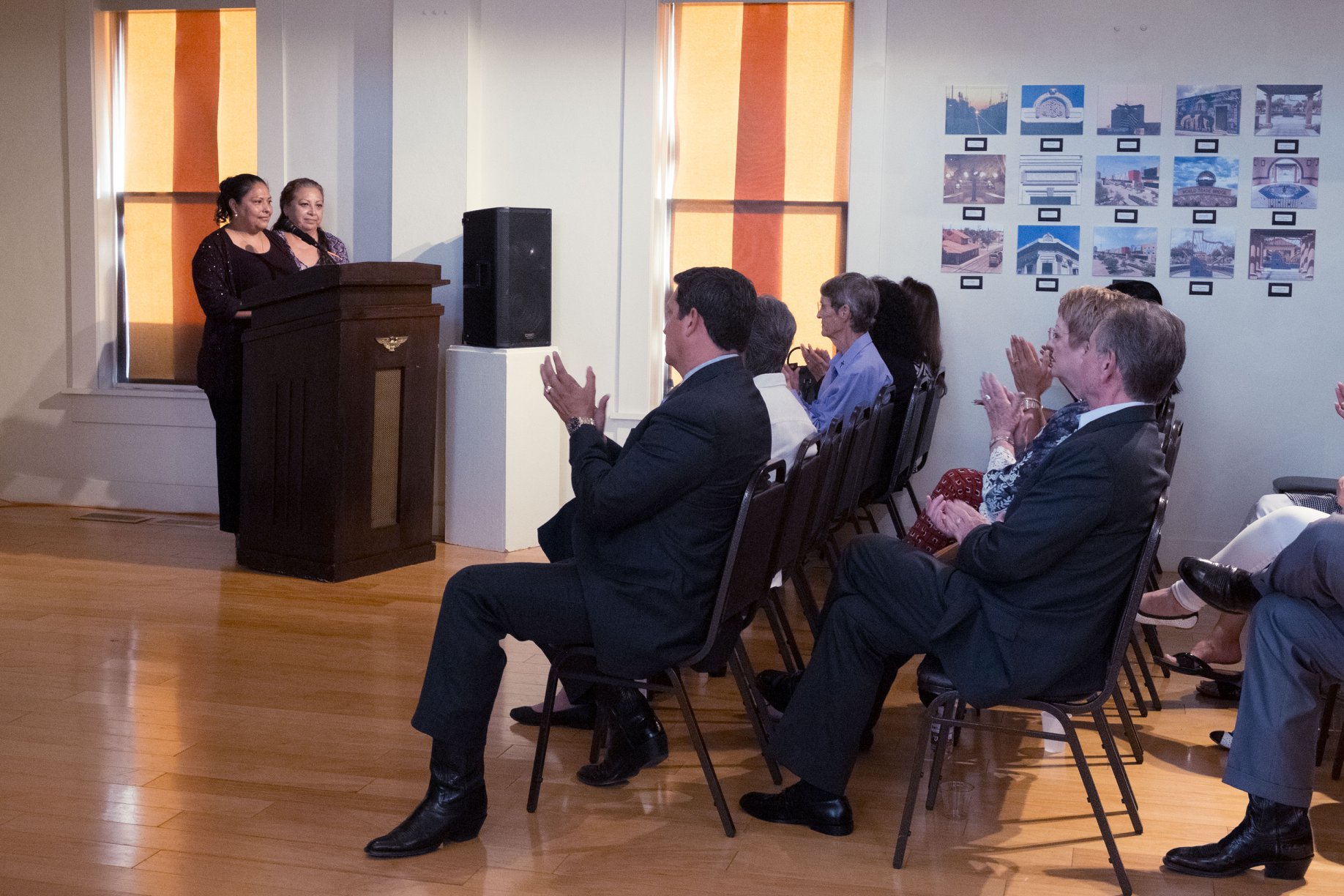Casa de Misericordia marks its 20th anniversary as an advocate and a safe haven for victims of domestic violence. After proclamations earlier this month from the City and the County noting the life-changing work of the shelter and after an open house for the public, the Webb County Heritage Foundation (WCHF) will host a reception Tuesday, July 17, to commemorate Casa’s important role in the lives of many Laredoans.
The WCHF reception will take place from 6 to 8 p.m. at the Villa Antigua Border Heritage Museum at 810 Zaragoza Street.
The origins of Casa are rooted in the humanitarian work of Sister Rosemary Welsh and the health care providers of Mercy Clinic who in 1997 became increasingly aware of the alarming number of women who were being abused and the void of a shelter for them in Laredo. A call for urgent action to save women and their children coincided with a request from the community to open a domestic violence shelter that would accept pregnant women and offer counseling services.
A three-year, $277,000 Catherine’s Legacy Grant from the Sisters of Mercy was dedicated to the opening of the shelter. Along with additional in-kind donations from Mercy Health System of Texas, community organizations, and many individuals and families, Casa opened its doors on July 7, 1998.
The vision of Casa was then and continues to be that victims of domestic violence —despite what they have endured — can reclaim their lives with the support of the community by receiving comprehensive, holistic services and consistent long-term support. It is a tenet of Casa de Misericordia that domestic violence is not only a personal or family problem, but also a community problem. The shelter’s mission is supported by the belief that survivors of domestic violence who have gone on with their lives, when joined by other committed persons, can be a catalyst for compelling system changes towards more enlightened and long-term solutions.
Drawing upon this vision, the mission/purpose of Casa provides victims of domestic violence, including those who are pregnant and with children, with a sheltered environment that offers access to the very best services in education, legal advocacy, counseling, medical referrals, and spiritual guidance; holds batterers accountable for their actions; and provides the community with a vital and effective mechanism to change its perception and response to the needs of victims of domestic violence and those of their families.
Casa obtained independent 501©3 non-profit status in 1999 and hired an in-house counselor with funds from the Criminal Justice Division of the Office of the Governor.
By September 2001, Casa had become an annual contracting agency with the Texas Health and Human Services Commission’s (HHSC) Family Violence Program and began to receive funding according to the state’s budget. That same year, Casa successfully became a United Way recipient. An advisory board was formed of former Casa residents and community clients who would help guide the shelter’s policies.
A 2003 award of $850,000 from the Lamar Bruni Vergara Trust set in motion the construction of a much-needed education center that would offer shelter residents ESL classes and computer, sewing, and other skill sets to help them reconstruct productive lives in a violence-free environment.
At a special called meeting on September 17, 2003, the Casa board of trustees voted to become part of the newly formed Mercy Ministries of Laredo, the entity that came about after the sale of Mercy Medical Center to Community Health.
Upon its completion in 2004, Casa blessed and dedicated the Lamar Bruni Vergara Education Center, which through its classes has offered a women’s empowerment program and summer camps for their children. Most importantly, Casa has consistently provided services to victims who do not need shelter services but suffer from domestic violence and need support.
With an initial donation of $50,000 in 2005 from Mercy Health System, the shelter built a recreation center. Other donors came on board to support the effort, responding to the work of a fundraising committee led by Priya Vaswani and Thelma Cuellar to raise much-needed funds to support the shelter, its LBV Education Center, and other projects.
Casa celebrated another milestone in 2006 with the dedication of the Sisters of Mercy Recreation Center, a place in which families were able to play, rest, and enjoy the outdoors.
An expansion of the shelter facility was completed in 2009, brought to fruition through the generosity of grants from the Lamar Bruni Vergara Trust and the Guadalupe and Lilia Martinez Charitable Trust. The expansion increased the shelter’s bed capacity from 22 to 42, enlarged the kitchen and dining space, allowed the laundry room to be moved indoors, and created a space for the Rubio Family Counseling Room. It was determined at that time to transfer the deed of all shelter properties from Mercy Ministries of Laredo to Casa de Misericordia, which included the shelter, playground area, and the Mattie Smith-Gomez Family Center.
HUD (Housing and Urban Development) funds, which came through the City of Laredo in 2010, allowed the renovation of office and program space and the construction of a donation room. Other additions included the establishment of the Garden of Hope by the Meza Foundation in memory of Kristine Elizabeth Meza, a victim of domestic violence, and the installation of a sprinkler system donated by the Laredo Gateway Rotary Club.
In 2012, a new fence was constructed for the shelter’s recreation area, and a generous donation allowed the repainting of the Education Center.
In October 2012, Casa dedicated the Mattie Smith-Gomez Family Center to honor the memory of friend, board member, and advocate for victims of domestic violence in the Laredo/Webb County community. Smith was a leader in the community’s efforts to stop domestic violence.
In the spring of 2013, the Casa staff was approached by Olga Ramos’ family about the possibility of buying an additional property, and this venue was acquired by the ministry for much needed offices. The Gilpin and Ramirez families took on the planning and renovation of the property, which would free up space in the shelter and which would be called the McAuley Service Center.
The Webb County District Attorney, a Methodist Healthcare Ministries counselor, and St. Mary’s DACA (Deferred Action for late Children Arrivals) project utilize space in the new facility.
As the McAuley annex was completed in October 2014, Casa undertook the renovation of the kitchen and administrative office and added an extra bedroom to the shelter.
In 2015, a busy year for Casa, Nelly Uribe was hired as the shelter’s first fiscal manager.
The network server room was updated to increase client data security and Osnium, a new database for client services, was implemented and all staff trained to use it.
The proceeds of several grants replaced shelter appliances, washers, dryers, mattresses, bedding, and furniture.
Casa remains welcoming, clean, and hospitable to the standards of the Shelter Advocates who routinely visit all the rooms and ensure that everything is in working order.
A state visit/audit from HHSC in 2015 was successful in demonstrating that all shelter data was reported as required by the State.
Two new positions were added to the Casa staff in 2016, including a data recording coordinator and a case manager to assist families in accessing services needed after leaving Casa.
All Casa staff members were active collaborators in the planning, implementation, and evaluation of the 20th Annual Domestic Violence Conference. They were also co-sponsors with the Laredo health community in organizing the October 12, 2016 “Health Cares About Domestic Violence” press conference in Laredo. The Texas Council on Family Violence requested that Casa staff to be the lead agency in organizing the event.
Casa de Misericordia is a founding member of the Webb County Domestic Violence Coalition, which has grassroots and advocacy origins that share with the Sisters of Mercy a commitment to systemic change. The coalition now includes over 35 different agencies working together to educate and redefine the community’s perception of domestic violence. This is but one of the ways in which Casa is able to take a leadership role to educate the community about domestic violence. Casa also provides community presentations on domestic violence, teen dating violence, and bullying, and has implemented a program in which teens can use multi-media resources to spread their message and get involved in the movement against abuse and violence.
Casa made six significant changes in key positions in 2017 – counselors, case manager, shelter advocate, legal advocate, children’s services coordinator, and administrator of the Education Center. All positions were filled with qualified individuals and a full complement of co-workers. In 1997, the shelter had six employees and now has 21.
In 2017 Casa faced immigration issues, working closely with Texas Rio Grande Legal Aid and the Mexican Consulate to make “Know Your Rights” presentations and to keep up to date with DACA, DREAMERS, and SB-4 legislation.
Regarding secession planning, the Casa administrative team has expanded to include the shelter administrator/grants manager, shelter manager/data specialist, children’s services coordinator, education center administrator, education services manager and the executive director.
The administrative team began a 12-month Mercy Leader Formation Training in August of 2017 presented by the Vice-President of Mission in Ardmore, OK. Among the goals the team set was to present what they learned to the entire staff at the monthly Casa staff meetings.
An Archive Project Ad Hoc Committee has been formed to plan the best method to preserve the history of the shelter and its Education Center. The committee is guided by Cathey Moore, Bertha Puig, Irma Mireles Perales, and Cynthia Ramirez.
Casa has an active pool of volunteers that include high school and university students as well as concerned citizens. Casa has worked with Texas A&M International University and St. Mary’s University to provide students the opportunity to learn about domestic violence through their practicum hours. Professionals have offered their time and pro-bono services to assist those served by Casa. In addition, Casa works closely with both local school districts to secure tutoring services, school uniforms, and school transportation.
Casa continues to look to the future with cautious optimism. Keeping in mind the need to balance increased services with budget challenges, Casa is focused on evaluating its programs on an on-going basis to see how to best serve those who come in time of crisis and need.
Casa is committed to heightening awareness through the upcoming 21st Annual Domestic Violence Conference and the Laredo Health Coalition’s “Health Cares About Domestic Violence.”
For further information about Casa de Misericordia, please call (956) 712-9591.
